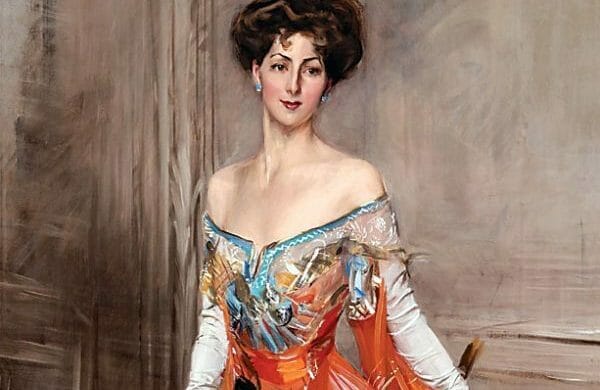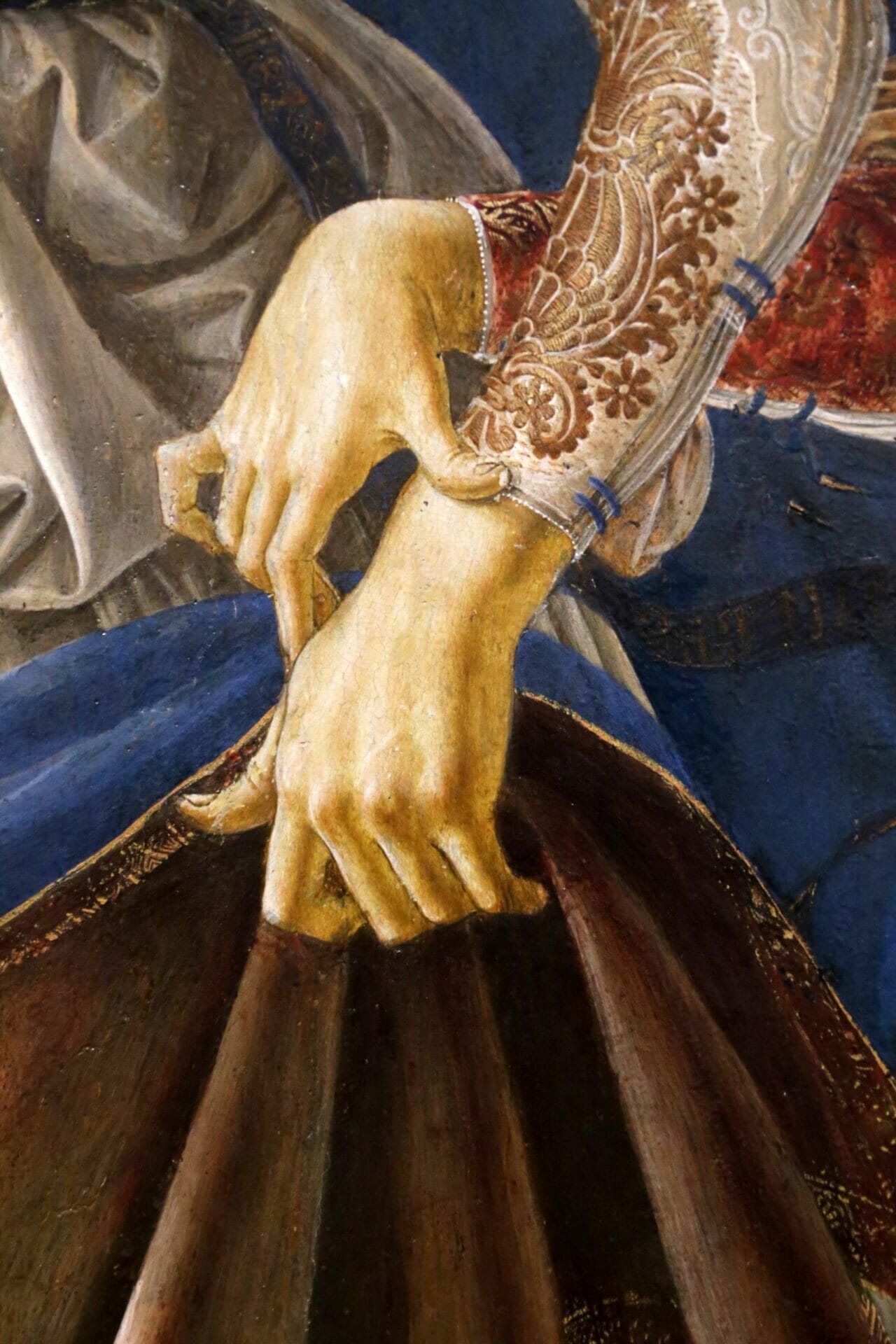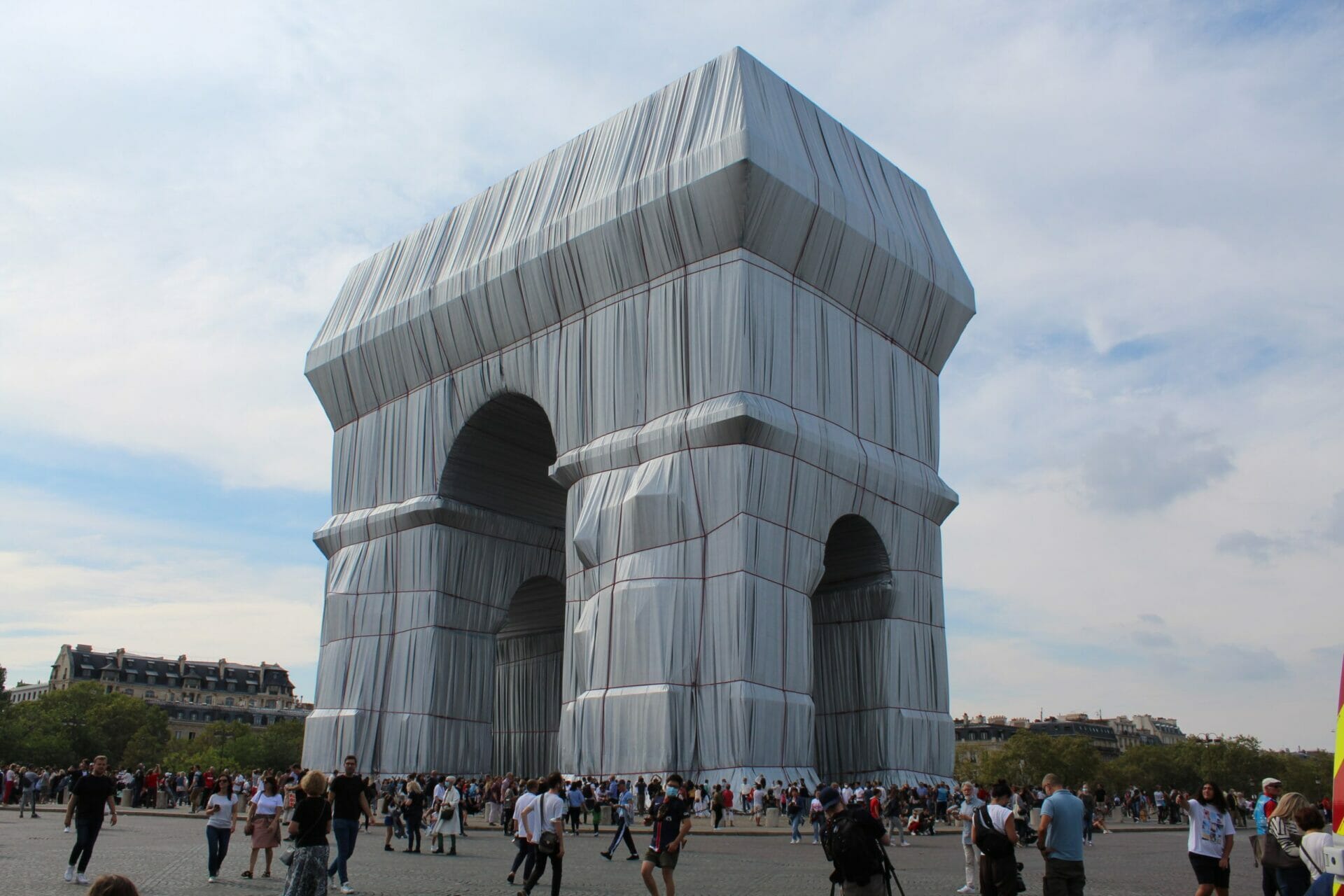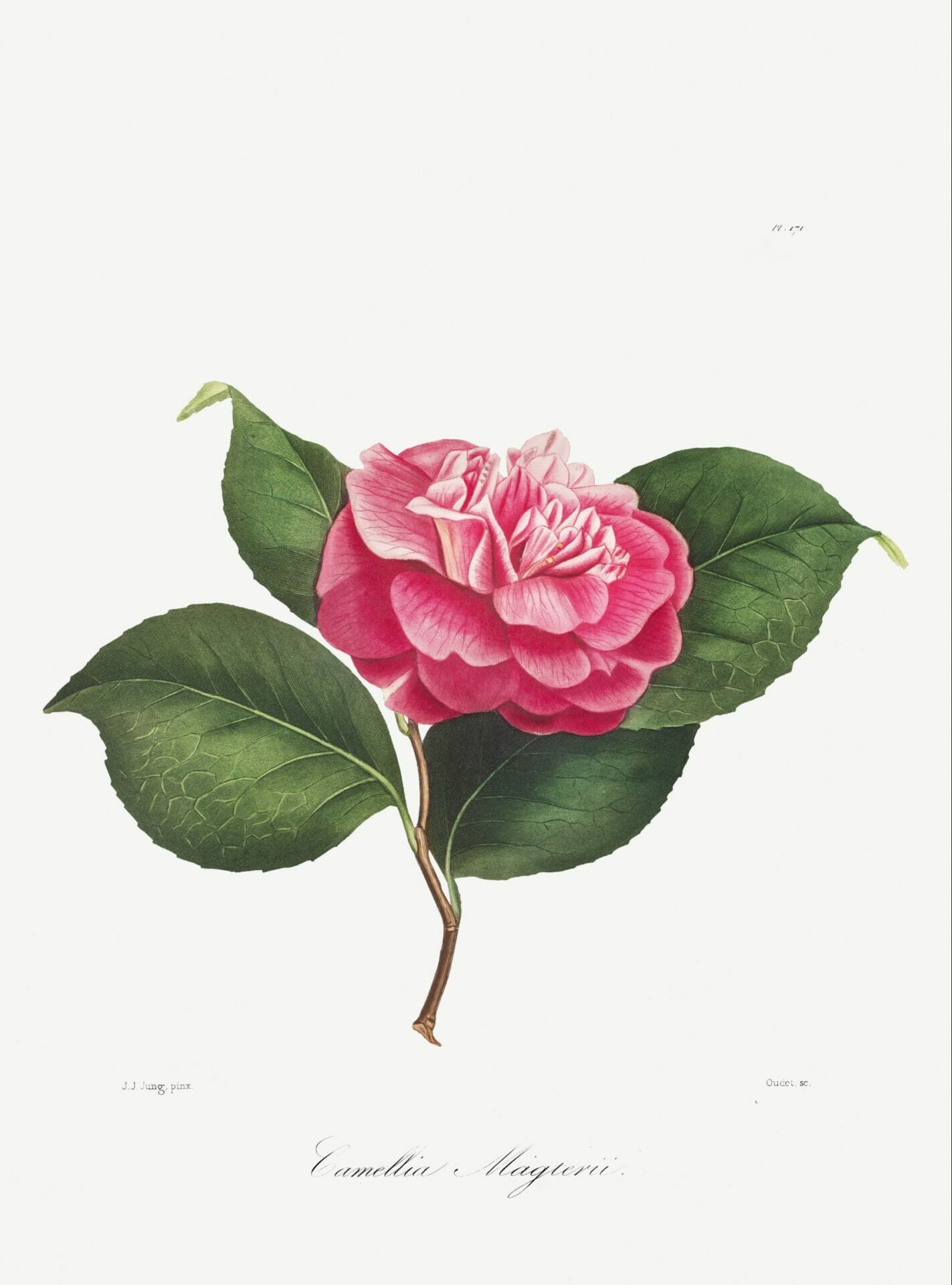
To a passer-by | Charles Baudelaire’s lost opportunity
Author
Year
Format
The female protagonist of Charles Baudelaire’s poem To a Passer-by could be one of the ladies who feature in the series of paintings done in Paris in the late nineteenth century by the Italian Giovanni Boldini, a leading society portrait artist of the time. The women in the poem are dressed in black, sharp and elegant in their gowns, with an aura of mystery and seduction in their gaze. But far from being just a costume fresco in the poem, this so-called “passer-by” is Baudelaire’s lost opportunity for salvation.
The deafening road around me roared.
Tall, slim, in deep mourning, making majestic grief,
A woman passed, lifting and swinging
With a pompous gesture the ornamental hem of her garment.
The neglected meaningful moment
This sonnet, which is from Les Fleurs du Mal (The Flowers of Evil, 1857) depicts a beautiful woman, passing by in the Parisian crowd. As soon as the poet sees her, he is overcome by her. It is as if she perceives the extreme relevance of this event in the man’s life, but nevertheless, she moves on and vanishes into the crowd.
Wislawa Szymborska’s Perspective describes precisely the same situation, but from a different point of view. In this case, the missed meeting between the two imaginary lovers is Szymborska’s inspiration – the poet, who is watching over them from a window, reveals to the reader the drama of their missed appointment. Anyway, even from that distance, the assumption that something vital must have happened and been neglected – just like in Baudelaire’s poem – is taken for granted.
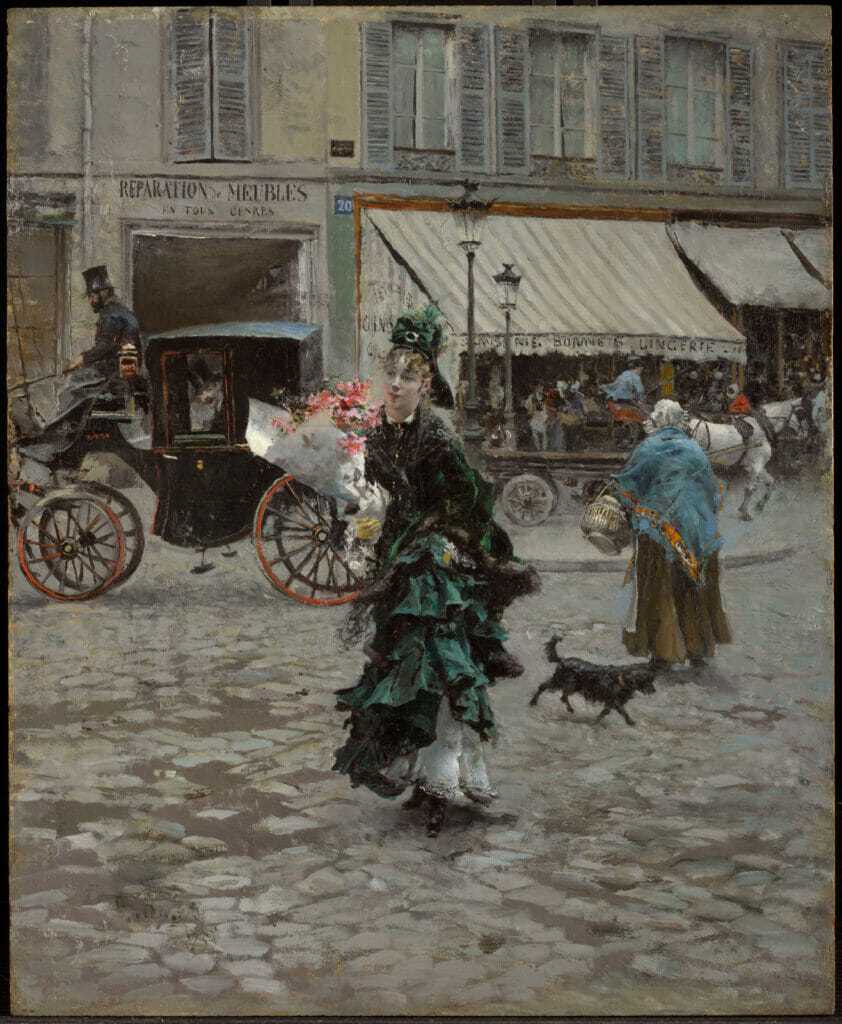
Baudelaire’s lost opportunity for salvation
The narrative circumstances in Baudelaire’s sonnet could also recall Dante Alighieri’s Vita Nova. Here, the poet illustrates the birth of love at the sight of Beatrice in the streets of Florence. But in Baudelaire’s speech, a new factor appears that Dante Alighieri could not have experienced: the deafening noise of modernity. The crowd – of which this is one of the first appearances in poetry – is the primary factor responsible for the separation of the two potential lovers. Under different circumstances, the woman passing by could have become a woman to contemplate and admire. In fact, both Alighieri’s and Baudelaire’s experiences are heir to Plato’s concept of love, but while Baudelaire misses his possibility of salvation through the female figure, Dante fully realizes it.
A gleam… then night! O fleeting beauty,
Your glance has given me sudden rebirth,
Shall I see you again only in eternity?
The ideal: the eluded homeland
Somewhere else, very far from here! Too late! Perhaps never!
For I do not know where you flee, nor you where I am going,
O you whom I would have loved, O you who knew it!
The illumination of the ideal goes hand in hand with the wound of disappointment. Even if the poet feels the call of another world, escaping from terrestrial sordidness is always impossible. The modern man seems to have no salvation. The artist, unlike the ordinary man, can perceive the ideal but cannot get to it anyway, and this gap in his sense generates the feeling of spleen: perennial boredom, bad temper, mixed with disgust for bourgeois life.
In the end, the artist’s superiority is the cause of his sense of dissatisfaction, eccentricity, and melancholy, and the ideal he craves always eludes him and cannot provide him with that remote homeland that could provide him with spiritual redemption. Quite the opposite, in fact, as the Italian poet Cristina Campo in her poem Diario Bizantino (Byzantine diary) claims precisely that homeland for herself by writing this verse: “two worlds – and I come from the other one”.
Tag
Buy a ☕ for Hypercritic





